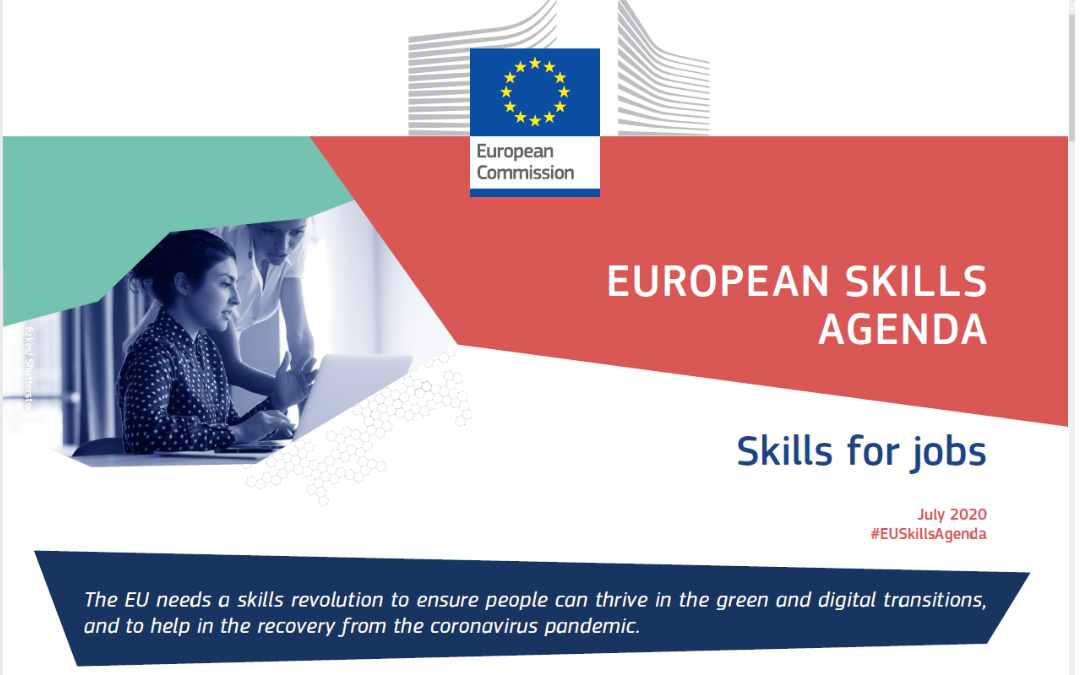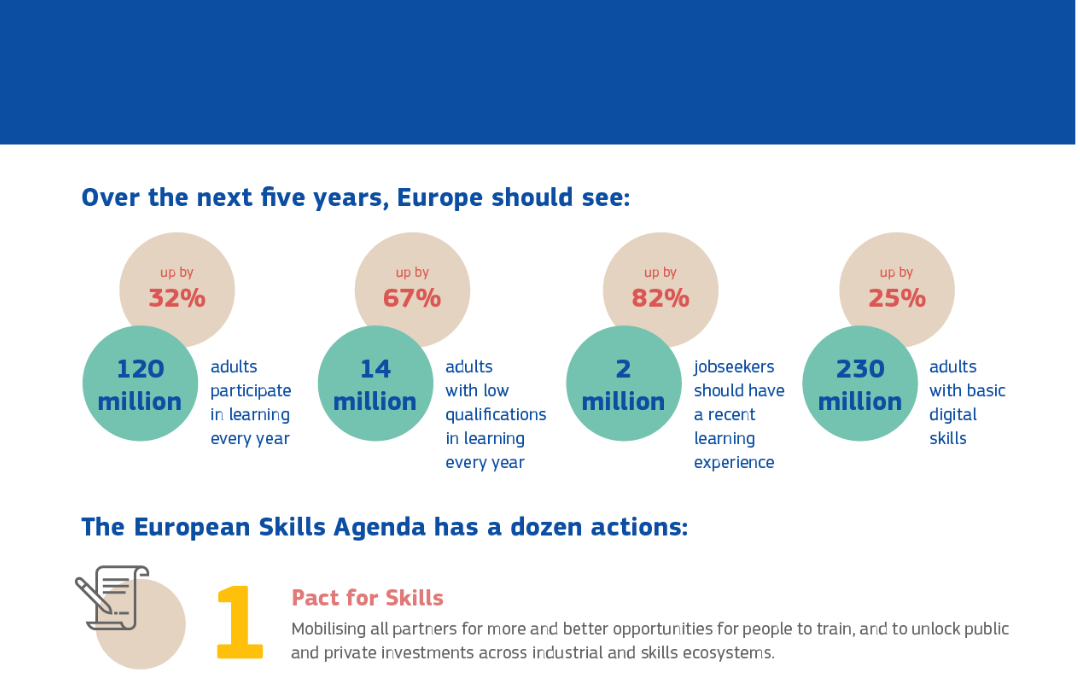This time, it was not necessary (or possible) to travel to Brussels for the EAAL national coordinators meeting
We recently reported about the PLA event, where the national coordinators of the EAAL process from most of the European countries could exchange views on work with specific target groups of adults. At that time, we scheduled our regular autumn meeting, where we would be briefed about the current measures at the EU level. Due to COVID-19, we listened to the European Commission representatives on October 15 via Zoom, each from their own part of the continent.
Chiara Riondino, the new Head of the Vocational Education and Training, Apprenticeships and Adult Learning unit of the European Commission Directorate-General for Employment, Social Affairs and Inclusion, presented the (revised) European Skills Agenda, which comprises twelve actions. She explained the European Education Area, which is to be achieved by 2025, the updated Digital Education Action Plan and the wider political context that will impact adult education and learning after 2020.
These actions are built upon the European Pillar of Social Rights; 2018, whose first out of twenty principles promotes the right to quality education, training and lifelong learning for everyone. “Digital” and “green” are the magic words of current European policy, which also calls for up and re-skilling – particularly of adults with low education and unsuitable qualifications. The goal concerning participation is also very ambitious: as many as 50% of adults aged between 25 and 64 should be included in lifelong learning by 2025 (according to the Adult Education Survey, this share was 38% in 2016). The digital culture being introduced by the new action plan will be inclusive and will for the first time ever cover non-formal and informal learning in addition to formal education. The actions are aimed also, or indeed primarily, at recovery after the COVID-19 pandemic.
To sum up, the recommendations at the European level are oriented towards sustainable competitiveness, social fairness and resilience. It is now up to the Member States to use these foundations to develop holistic national skills strategies and to put them into practice in a balanced way.
European actions are supported by the new 2021–2027 multiannual financial framework
The second EC representative, David Kunst, presented the new financial resources: the EU Budget for Recovery REACT-EU, European Social Fund Plus, Recovery and Resilience Facility, Just Transition Fund, Technical Support Instrument and the Invest EU Programme.
The issue of up and re-skilling (covered in the Council Recommendation on Upskilling Pathways), which is essential also in the EAAL process, remains a priority and is included primarily in the new Recovery and Resilience Facility, which will offer large-scale financial support for investment and reforms to be carried out by the Member States in line with the recommendations of the respective European Semester. The aim is to mitigate the economic and social impact of the pandemic and make economies more sustainable, resilient and better prepared for the challenges of the green and digital transitions. Member States will submit their national recovery and resilience plans to the European Commission – the first draft along with a national budget proposal as early as October this year.
New tools for the promotion of lifelong learning
Kunst also presented the “Individual Learning Account” tool (Action 9 of the European Skills Agenda). It is designed to increase the participation of adults, as they receive a certain sum of money to be used for education, and everything is supported by guidance, the validation of learning outcomes and the possibility of taking educational leave. The European Commission commissioned a study of existing and potential ways to implement this tool, which we were dealing with many years ago in Slovenia as well. In 2021, the EC will focus on the development of this tool and hold a public discussion with the Member States.
The Skills Agenda also includes an action for introducing micro-credentials (Action 10). This is a response to the growing need for short, flexible, accelerated training to facilitate adaptation to constant changes on the labour market and the demand for new occupations. At the same time, the Action should contribute to greater accessibility of lifelong learning and support the modularisation of programmes, a flexible curriculum and various upskilling pathways. The European Commission is developing the European approach to the introduction of micro-credentials at an accelerated pace. It will include European standards for quality and transparency and support the inclusion of micro-credentials in qualifications frameworks and their collection and presentation in Europass. The revamped Europass platform (Action 11) is now available in 29 languages and offers tools and guidance on CV and cover letter writing as well as other information.
What does it all mean for adult education?
All speakers, including Martina Ní Cheallaigh, who coordinates the EAAL implementation process at the European Commission, emphasised that adult education and lifelong learning have never been as visible and ubiquitous as they are in the current European education policy. While it is true that the aspect of acquiring skills for work continues to be at the forefront, there are also enough impulses for the humanistic and sustainable dimensions.
The eighth Action of the Skills Agenda expressly concerns skills for life. This Action, which the EC plans to finalise by the end of the year, will be an opportunity to support adult education for everyone – young people and adults – on issues such as media literacy, civic competences and financial, environmental and health literacy. Of course, “skills for work” should not be separated from those “for life”, as they are closely intertwined – this must also be constantly emphasised.
Considering how much the role of adult education is favoured at present, all that remains for us is to help ensure the same attitude at the national level and to implement the above Actions in a coordinated and collaborative spirit. Now there really is no doubt – unity is the only way we will recover and strengthen our resilience!
Zvonka Pangerc Pahernik, MSc (zvonka.pangerc@acs.si), SIAE



